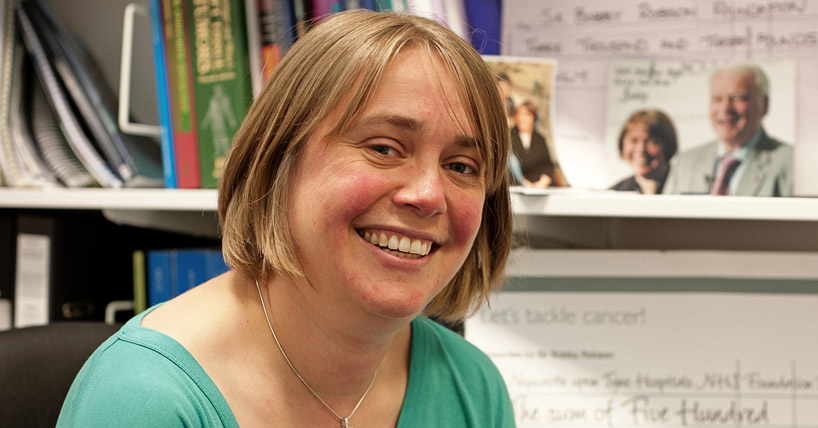Prestigious honours
Leading academics given prestigious honours
Published on: 10 May 2018
Two leading academics affiliated to Newcastle University have been given prestigious awards for their outstanding work in health research.
Professor Tracy Palmer, who will join the University’s Faculty of Medical Sciences this summer, has been named as Fellow of the Royal Society (FRS) - the world’s oldest and most prestigious scientific academy in continuous existence.
Meanwhile, Professor Ruth Plummer, from the Northern Institute for Cancer Research, Newcastle University, has been elected as a Fellow to the Academy of Medical Sciences.

Bacteria research
Professor Palmer’s research has been focused on the study of bacteria. She is particularly interested in the processes by which bacteria such as E. coli interact with their surroundings and has published over 100 papers on the subject, gaining international recognition as one of the leading experts in the field.
The Royal Society is the national academy of science of the UK and the Commonwealth and is one of the world’s most prestigious institutions of science. Its aim is to promote excellence in science.
Being made Fellow of the Royal Society is a major honour for any scientist. The Fellowship is made up of the most eminent scientists, engineers and technologists from the UK and the Commonwealth. Past members have included Newton, Darwin and Einstein.
Professor Palmer said: “Being made a Fellow of the Royal Society is something I have dreamt of but you can never really expect it is going to happen.
“I was physically shaking when I got the news, because I couldn’t quite believe it. For any scientist this is a major landmark in a career and I am deeply honoured.”
She was elected as a Fellow of the Royal Society in Edinburgh in 2009, a Fellow of the American Academy of Microbiology in 2015, and a Member of the European Molecular Biology Organisation in 2017.
Her group were one of the first to describe the Tat system, an unusual pathway that bacteria use to secrete proteins into the environment. This pathway is used by bacteria to transport proteins that cause disease in humans and animals, and that can degrade antibiotics, such as penicillin.
More recently, she has also worked on another protein secretion system, named Type VII, in the human pathogen Staphylococcus aureus.
Her group demonstrated that S. aureus uses this system to secrete a toxin that kills neighbouring bacteria, a process which is likely to be critical to allow the bacterium to compete with other organisms when it colonises the human body.
Professor Robert Lightowlers, Director of the Institute for Cell and Molecular Biosciences, said: “This is arguably the most prestigious Fellowship to be awarded to any scientist in the UK.
“This is a tremendous recognition of the work Professor Palmer has pioneered. We look forward to welcoming her to the Centre for Bacterial Cell Biology in Newcastle soon.”
New Fellow
Professor Plummer is one of the UK’s world-leading researchers to be elected to the Fellowship of the Academy of Medical Sciences for her outstanding contributions to cancer research discoveries, and translating developments into benefits for patients and the wider society.
She has been instrumental in the development of the life-extending ovarian cancer drug, Rubraca®, which could soon been given to patients in Europe.
Studies have shown that the oral medication has a high success rate as 54% of women on clinical trials had complete or partial shrinkage of their tumour for an average of 9.2 months.
Professor Plummer, who leads ground-breaking clinical trials testing new cancer medicines in patients, said: “I am delighted and honoured to be elected to this fellowship. To me it is a recognition of the fantastic teamwork which goes into the research to take a new cancer drug into the clinic.
“I am looking forward to joining the academy and supporting the work it does to develop and mentor the next generation of clinical researchers.”
The new Fellows will be formally admitted to the Academy at a ceremony on 27 June 2018.
Academic excellence
Professor David Burn, Pro-Vice-Chancellor for the Faculty of Medical Sciences, said: “Both scientists are world-leaders in their fields and these awards are a tribute to their outstanding achievements.
“Newcastle University has a strong international reputation in molecular microbiology and cancer research and these accolades demonstrate our academic excellence.
“I would like to take this opportunity to congratulate them both and also to welcome Professor Palmer to Newcastle University – I look forward to her joining us in the summer.”




